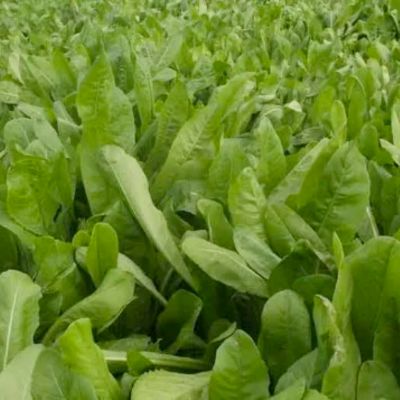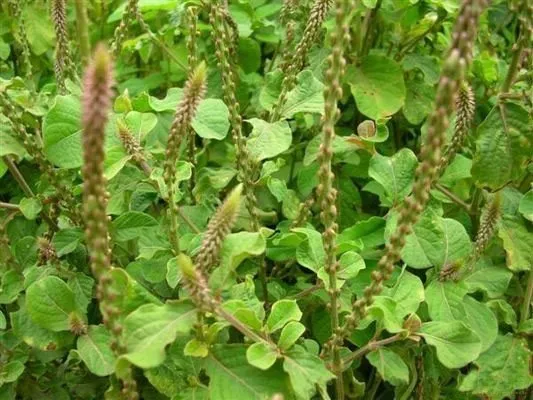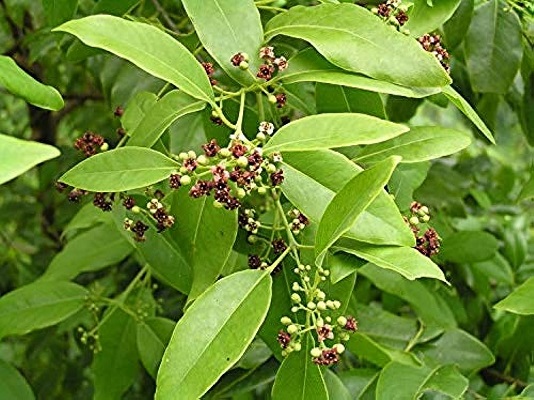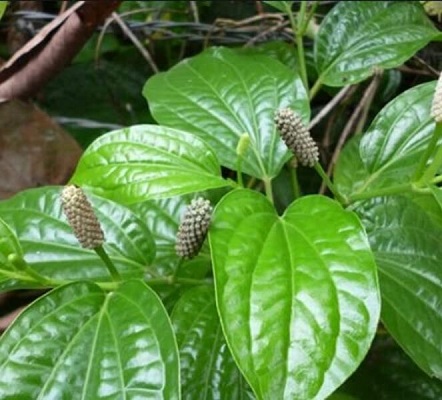On This Page
Apamarga (Achyranthes aspera) – Uses & Benefits
Introduction
Apamarga, commonly known as ‘Prickly chaff flower’ is an erect, stiff, annual-perennial herb, often with a woody base found commonly in waste places roadsides, gardens, fields or farms, forest edges, forest clearings and other places. The name ‘Apamarga’ indicates that the plant mitigate all three vitiated doshas. The word ‘Achyranthes’ means the plant have numerous thorns in it and ‘aspera’ indicates the spinous bracts of inflorescence of prickly chaff flower plant. Apamarga is one of the important and most used herbs in Ayurveda due to its vast variety of actions and ability to pacify all three doshas. So it is widely used in many disease conditions including allergic reactions.
Dr. Gupta’s IAFA conducted various studies to prove the actions of Apamarga. Through these studies experts have found that Apamarga have antihypertensive, antidiabetic, antiallergic, abortificient, diuretic, antileprotic, purgative, spasmolytic, hypoglycemic and antifungal actions. Through various studies the IAFA scholars have found out that the leaf extract of apamarga have wound healing and antioxidant activities. The alkaloids, steroids and triterpeneses found in the leaf extract bring about this action. Spermatotoxic effects are shown by protein isolated from roots of Apamarga. Saponin from leaf extracts of this herb is found to have larvicidal activity. The root extract of Apamarga is proven possessing abortificient action.
Action of Apamarga – Achyranthes aspera in Allergies
Dr. Gupta’s IAFA experts are putting continuous efforts to prove the antiallergic property of Apamarga. The plant contains phytoconstituents like alkaloid achyranthine, ecdysone, ecdysterone, oleanolic acid, saponin A,B,C,D, hentriacontane etc. Apamarga herb is indicated to have different actions like antiallergic and antifungal activities. It can effectively be used against different microbes. So it can be used against allergic reactions caused by Vata and Kapha doshas.
Vernacular Names
| Hindi name | Chirachinta, Chirchira; Chingchingi, Chirchita, Latjira, Onga |
| Sanskrit name | Markata, Markata pippali, Kapi Pippali, Parak Pushpi, Pratyak Shreni, Mayuraka, Kinihi, Shikari, Adah shalya, Khara Manjari, Kubja, Vasheera, Durabhi graha, Durgraha |
| English name | Prickly Chaff flower |
| Tamil name | Shiru kadaladi, Nayuruvi |
| Bengali name | Apang |
| Marathi name | Aghada, Pandhara-aghada |
| Telgu name | Anisha; Apamarga; Uttareni (egod) |
| Punjabi name | Puthakanda, Kutri |
| Kannada Name | Uttrani, Uttarani |
| Malayalam name | Katalati, Kadaladi |
| French name | herbe à Bengalis, herbe sergen queue de rat |
| Spanish name | Cadillo chichoborugo, cadillo de mazorca, mazotillo |
Botanical Name
Achyranthes aspera Linn.
Family
Amaranthaceae
Parts Used of Apamarga – Achyranthes aspera
- Whole plant
- Roots
- Leaves
- Seeds
- Kshara
Ayurvedic Reference of Apamarga

Preparations and Dosage of Apamarga – Achyranthes aspera
- Kshara: 0.25 – 2 grams per day
- Juice (swaras): 10-20 ml per day
Medicinal Properties and Uses of Apamarga – Achyranthes aspera
- Food allergy: eliminates aam visha (toxins) and stimulate agni (digestive fire), hence helps in food allergic conditions.
- Nasal allergy: found very effective in expelling sputum from lungs, relieves in cough and cold, asthma, rhinitis, sinusitis and bronchitis.
- Skin allergy: kanduhara (relieves in generalized pruritis) used in urticarial rashes.
- Fungal Infections: have fungicidal activity when taken orally.
- External Uses: paste preparation used in warts and Scorpio bite; Swaras drops in ear pain.

Have A Health Issue?
Consult Online
- Dr. Sahil Gupta (B.A.M.S., M.H.A.)
Ayurvedic Allergy Specialist
CEO & Founder of IAFA®
Home Remedies of Apamarga – Achyranthes aspera
Ayurveda is the Indian wisdom for maintaining health through natural measures. Home remedies are the easiest measures for health care. Apamarga is having a wide range of actions in different medical conditions.
- In Diarrhoea (Visuchika) – Fresh roots of Apamarga is collected and made into a paste. It then taken with water checks diarrhea.
- In Sinus related cases(Nadivrana) – Oil is prepared from Apamarga fruits and is mixed with cow’s urine. It is the applied along the sinus.
- In Excessive hunger (Bhasmaka) – Gruel prepared of Apamarga seeds, milk and Iguana meat soup is taken.
- In Wounds (Vrana or Sastrakshata) – Paste of fresh leaves of Apamarga is applied over accidental wound to check bleeding.
- In Vomiting (Chardi) – Root powder of Apamarga is taken along with honey in vomiting.
- In Stomach ache (Udarasula) – Juice of Apamarga plant is taken, mixed with honey and given in stomach ache.
- In Piles (Arsas) – Repeated administration of root powder of Apamarga grinded with honey and rice water is useful in piles.
- In Bleeding disorders (Raktarsrava) – Seeds of Apamarga taken with rice water is effective in bleeding disorders.
Dr. Gupta’s IAFA maintains research programs to rediscover the hidden actions of various herbs and is incorporating those information to ensure safe and effective treatment to various diseases, especially allergic diseases. All the herbs used in our system are mentioned in the basic texts of Ayurveda and are collected through high level quality measures. Use IAFA products for longevity and to obtain immune power.
Was this Page Helpful?
Read More Articles
-

Kasini (Cichorium intybus)
Kasini (Cichorium intybus) commonly known as Chicory is a perennial herb, with large…
-
-









